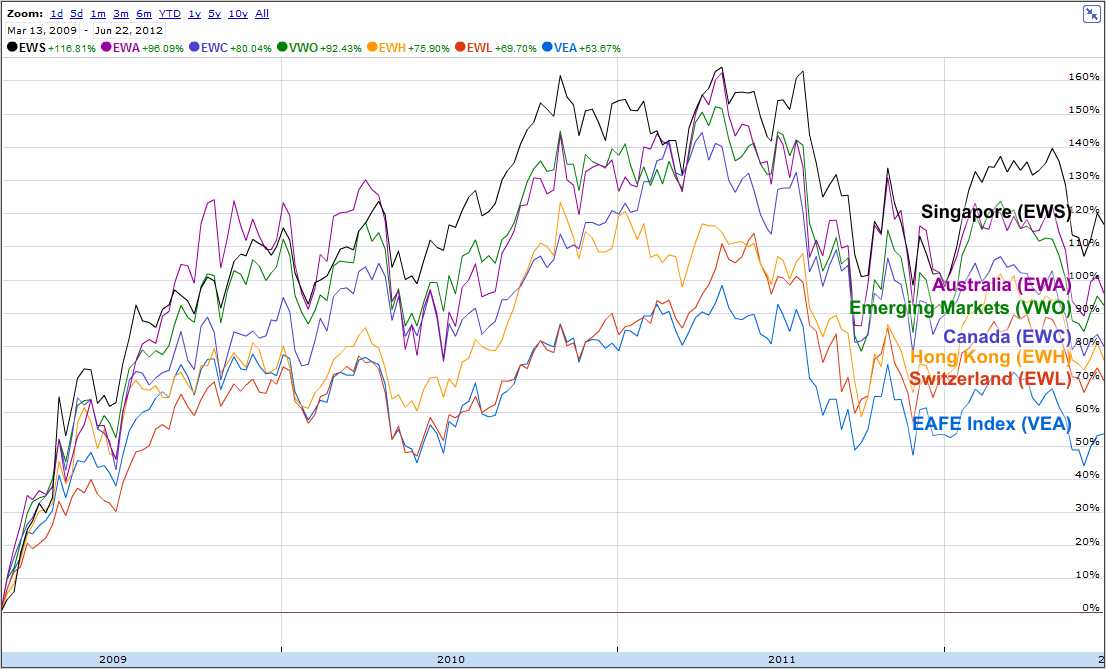We believe this is one of the times when your asset allocation should tilt foreign and overweight the handful of countries with high economic freedom. Although many economists acknowledge that freedom matters, few investment strategies take advantage of this fact.
Foreign investments has fallen recently as European sovereign debt problems have sucked down the global markets. It is easy to look at recent history as though it is part of some longer trend, so I decided to look to see how some of the investments that might have a big drop in a single day have appreciated even more prior to that drop.
Therefore, I looked this weekend at how the five countries with the most economic freedom (Hong Kong, Singapore, Australia, Switzerland and Canada) and Emerging Markets have been faring since the bottom of the markets on 2009-03-13 through yesterday 2012-06-22. I ran the comparison against the EAFE Index for foreign stocks using the best exchange traded funds for each investment.

My conclusion is that despite the recent volatility in the global markets, being invested in countries high in economic freedom and low in debt and deficit has been an excellent strategy. Much of the EAFE index is comprised of countries is in the ring of fire with high debt and deficit. Under weighting these countries is a good strategy.
But the number of holdings to accomplish this strategy is high. Just investing in the global index is easy. It takes one ETF. Picking a handful of countries to overweight is more difficult and balloons the number of holding you have to purchase.
Subscribe to Marotta On Money and receive free access to the 1.5 hour video: Where in the World Should I Invest?